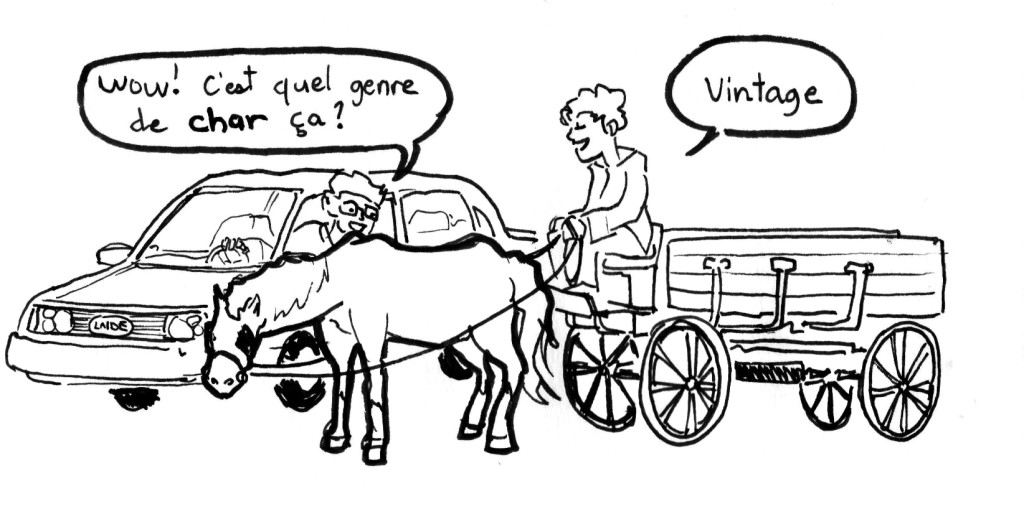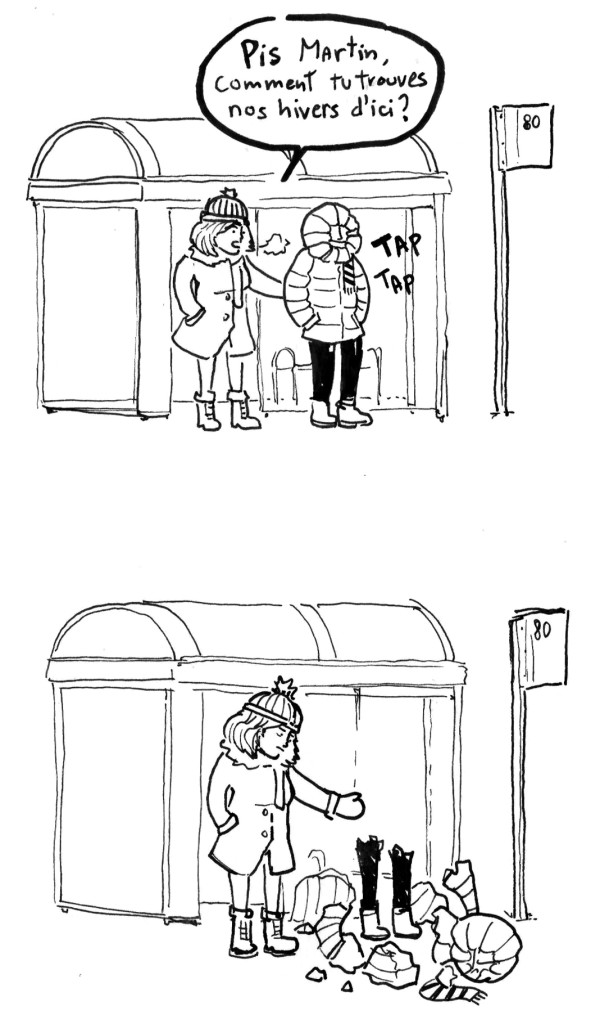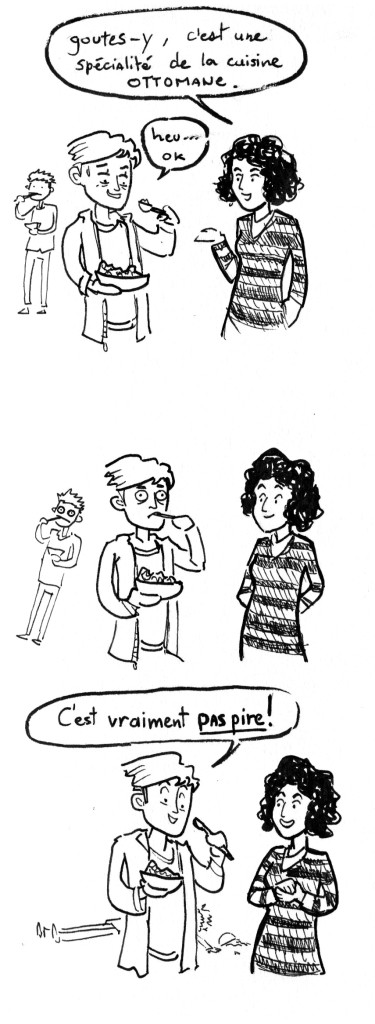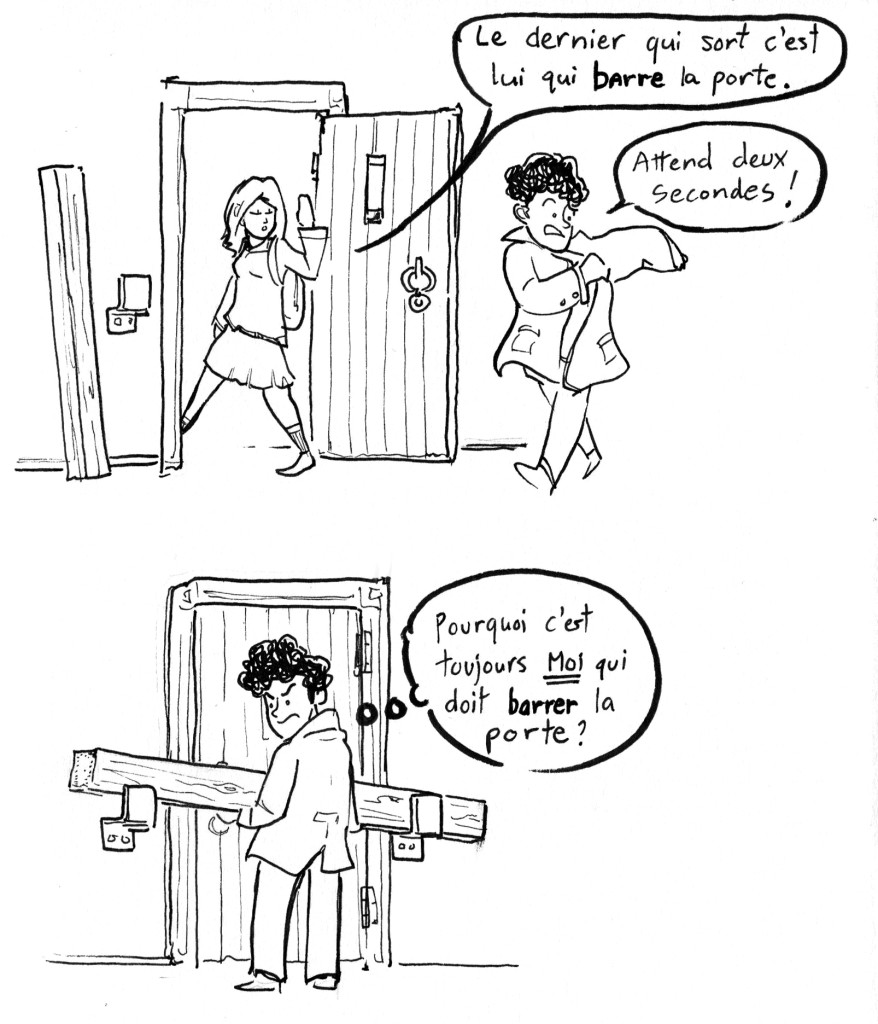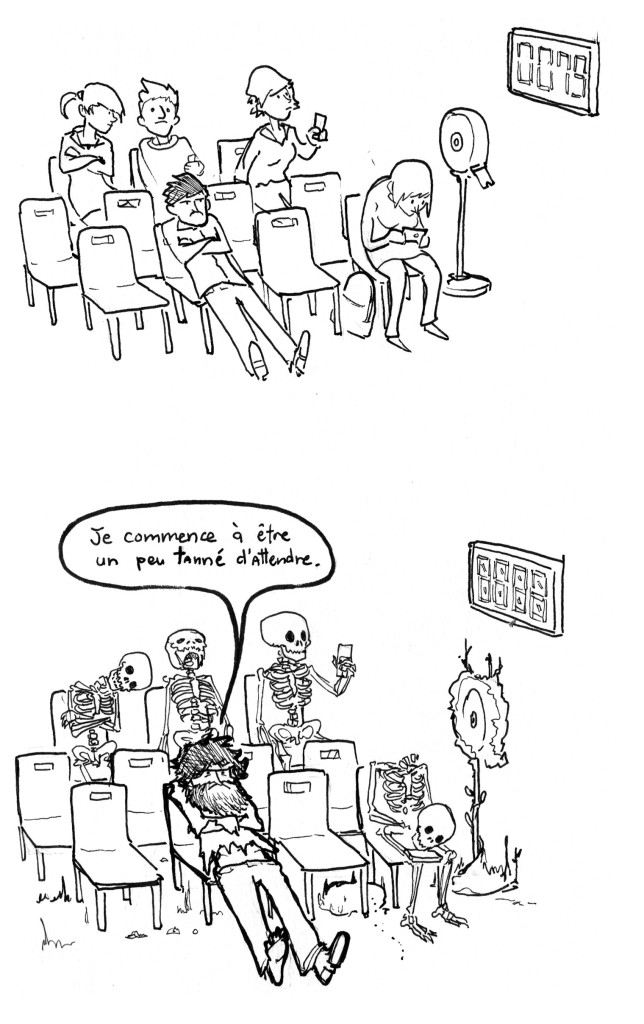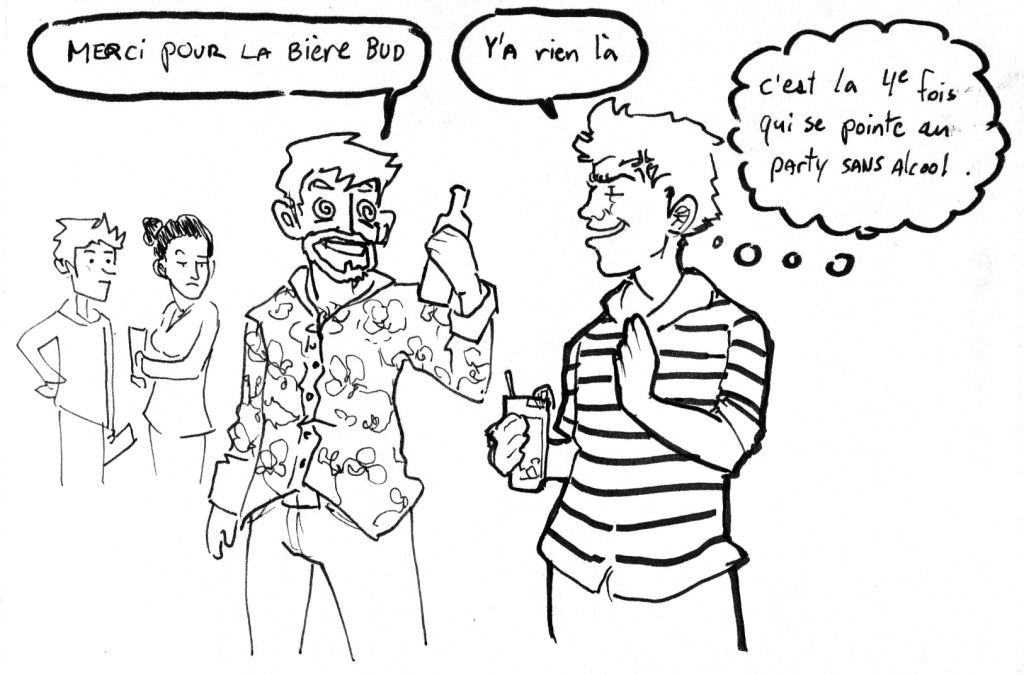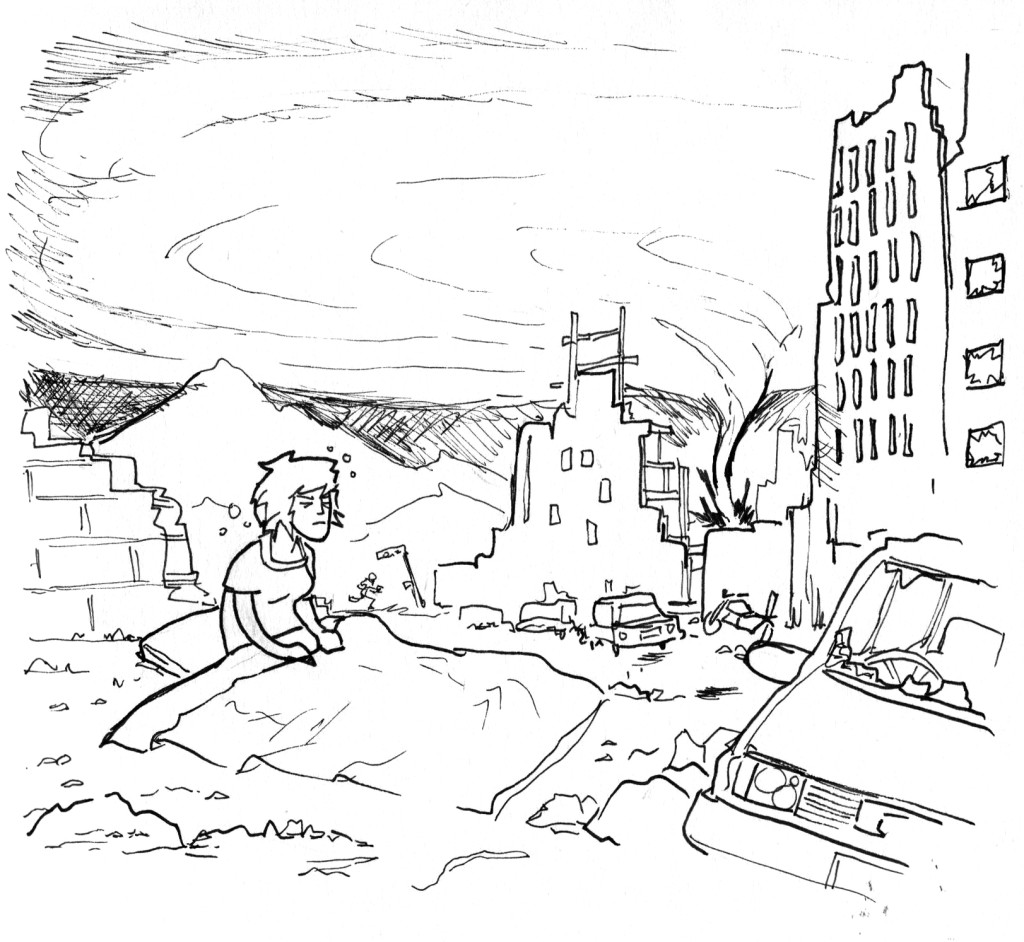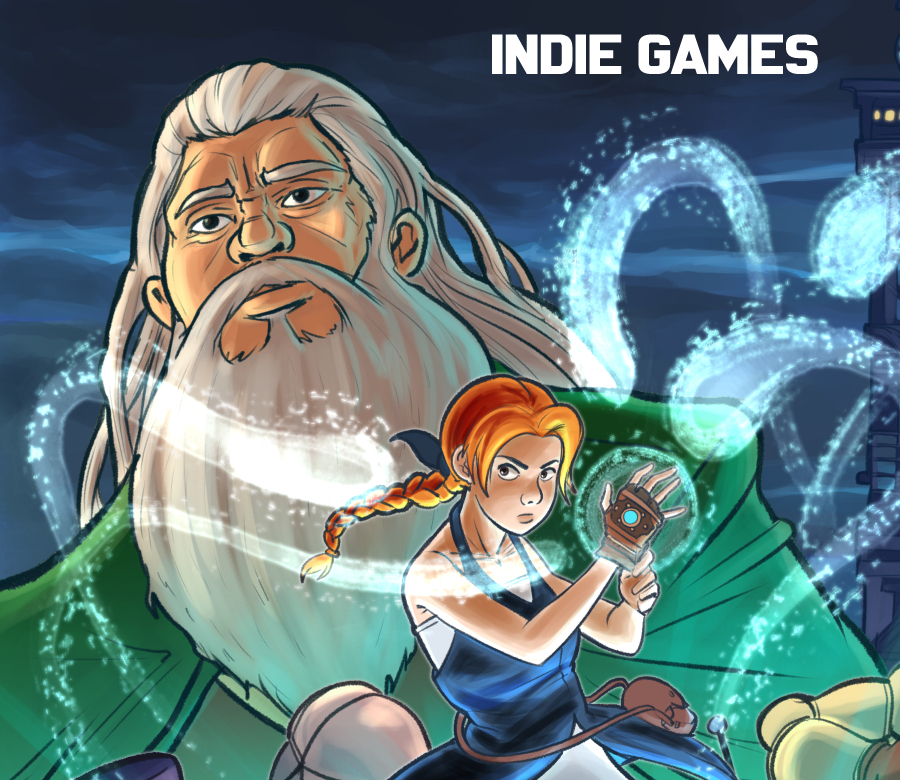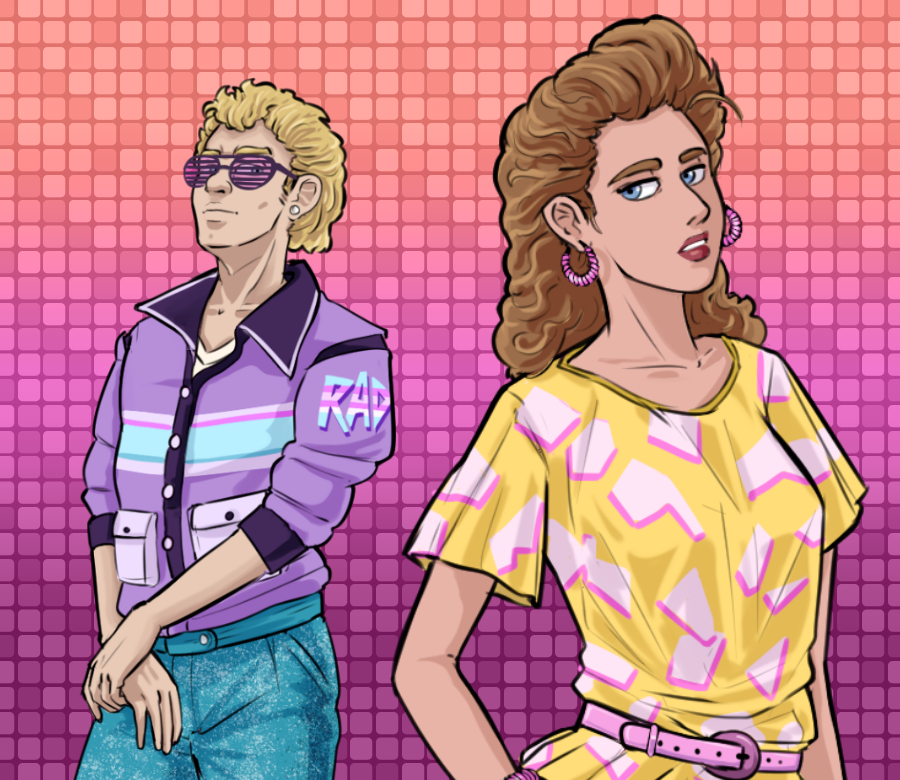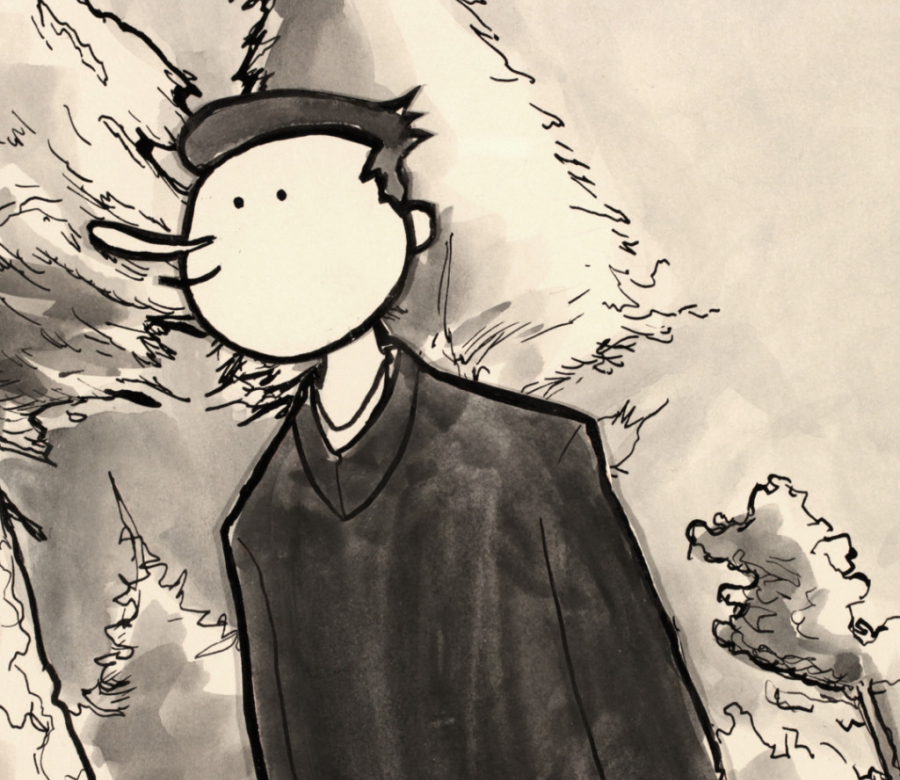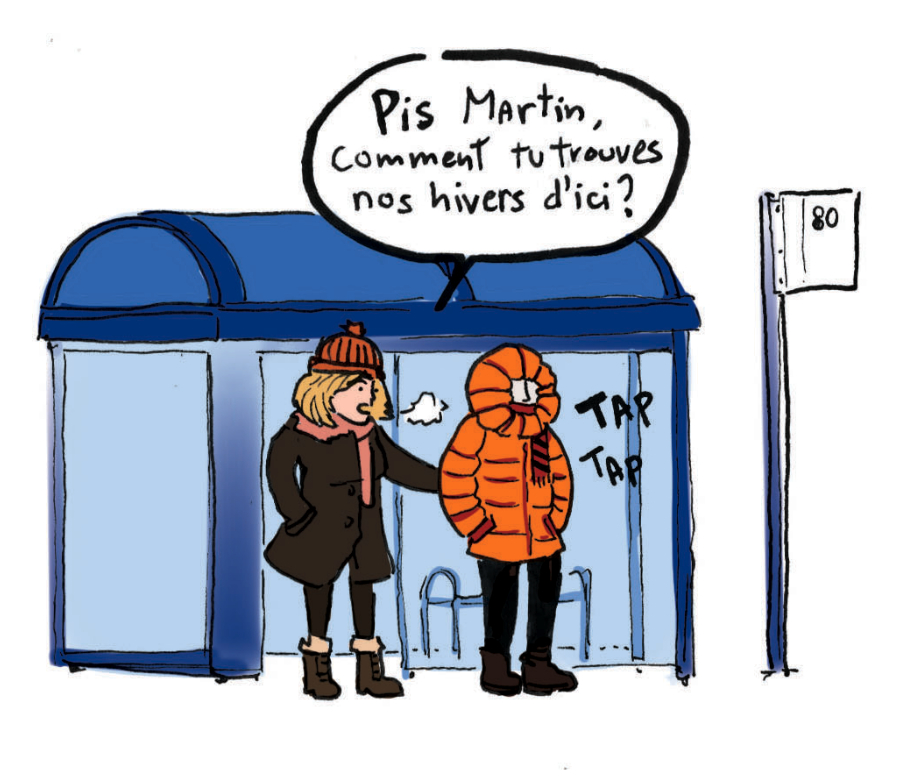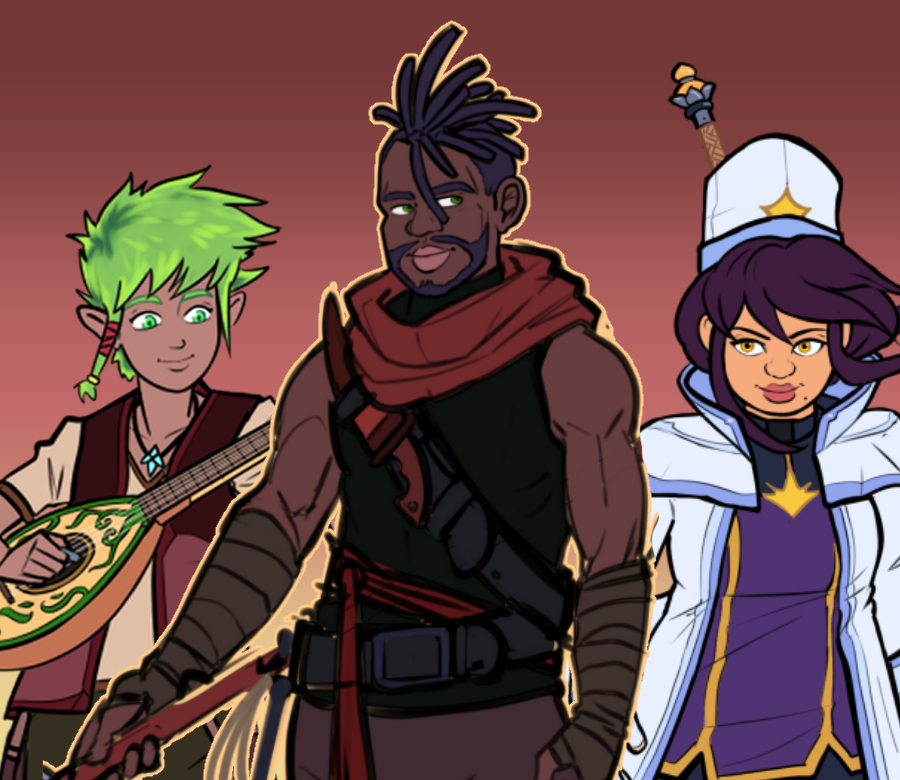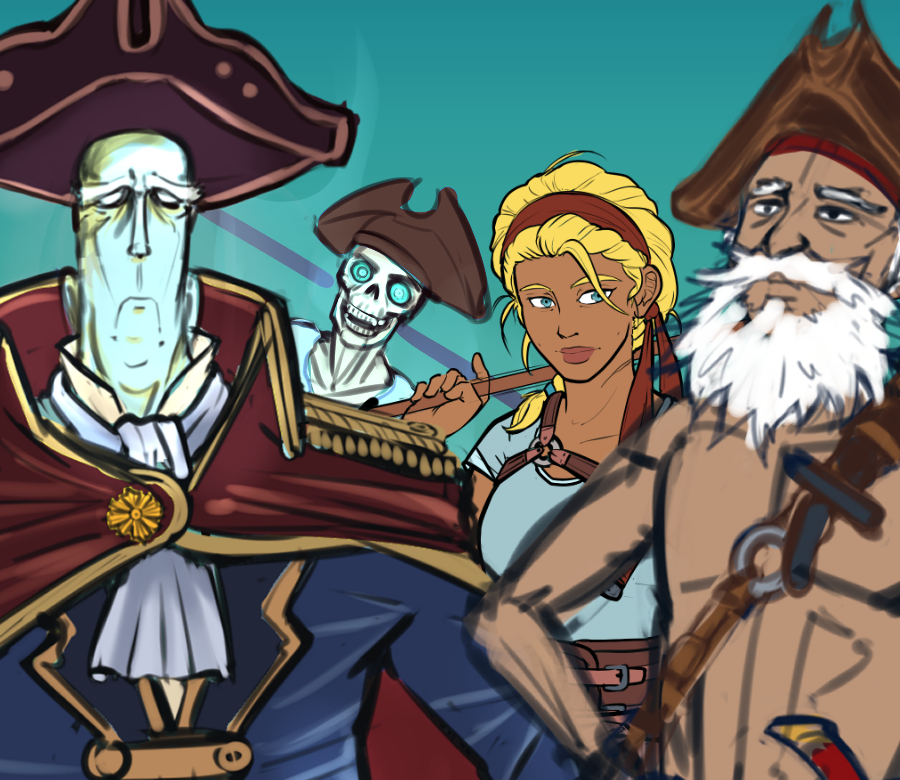From 2013 to 2014 I produced a series on Québécois expressions in Concordia University student newspaper The LINK. These are just a sample of the comics I’ve produced during that time.
Pété au ‘Frette’ (pay-tay oh fret)
“Pété au Frette” is a colloquial expression to describe when something is broken or has stopped working when it’s cold. It originally referred to the trees that popped and cracked under really cold temperatures. “Péter” means to blow up or to break, and “frette” is a way of saying “froid,” or cold.


